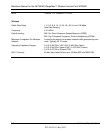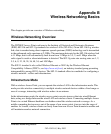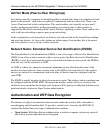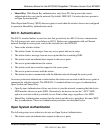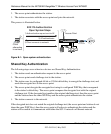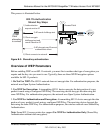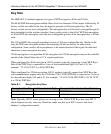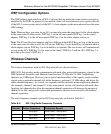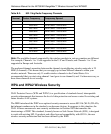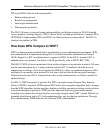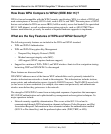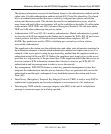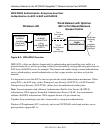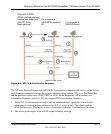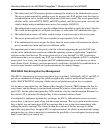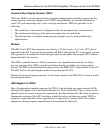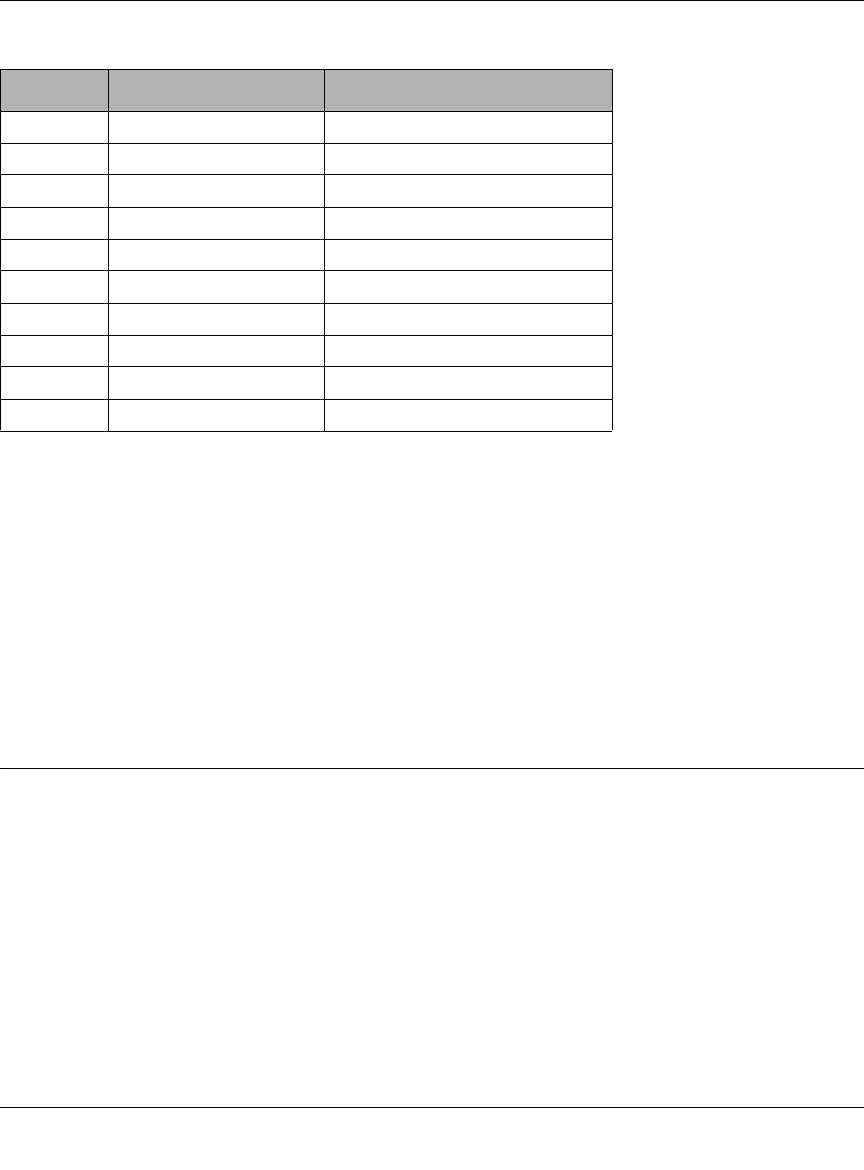
Reference Manual for the NETGEAR RangeMax™ Wireless Access Point WPN802
B-8 Wireless Networking Basics
202-10101-01, May 2005
Note: The available channels supported by the wireless products in various countries are different.
For example, Channels 1 to 11 are supported in the U.S. and Canada, and Channels 1 to 13 are
supported in Europe and Australia.
The preferred channel separation between the channels in neighboring wireless networks is 25
MHz (5 channels). This means that you can apply up to three different channels within your
wireless network. There are only 11 usable wireless channels in the United States. It is
recommended that you start using channel 1 and grow to use channel 6, and 11 when necessary, as
these three channels do not overlap.
WPA and WPA2 Wireless Security
Wi-Fi Protected Access (WPA and WPA2) is a specification of standards-based, interoperable
security enhancements that increase the level of data protection and access control for existing and
future wireless LAN systems.
The IEEE introduced the WEP as an optional security measure to secure 802.11b (Wi-Fi) WLANs,
but inherent weaknesses in the standard soon became obvious. In response to this situation, the
Wi-Fi Alliance announced a new security architecture in October 2002 that remedies the
shortcomings of WEP. This standard, formerly known as Safe Secure Network (SSN), is designed
to work with existing 802.11 products and offers forward compatibility with 802.11i, the new
wireless security architecture that has been defined by the IEEE.
4 2427 MHz 2414.5 MHz - 2439.5 MHz
5 2432 MHz 2419.5 MHz - 2444.5 MHz
6 2437 MHz 2424.5 MHz - 2449.5 MHz
7 2442 MHz 2429.5 MHz - 2454.5 MHz
8 2447 MHz 2434.5 MHz - 2459.5 MHz
9 2452 MHz 2439.5 MHz - 2464.5 MHz
10 2457 MHz 2444.5 MHz - 2469.5 MHz
11 2462 MHz 2449.5 MHz - 2474.5 MHz
12 2467 MHz 2454.5 MHz - 2479.5 MHz
13 2472 MHz 2459.5 MHz - 2484.5 MHz
Table B-2: 802.11b/g Radio Frequency Channels
Channel Center Frequency Frequency Spread



